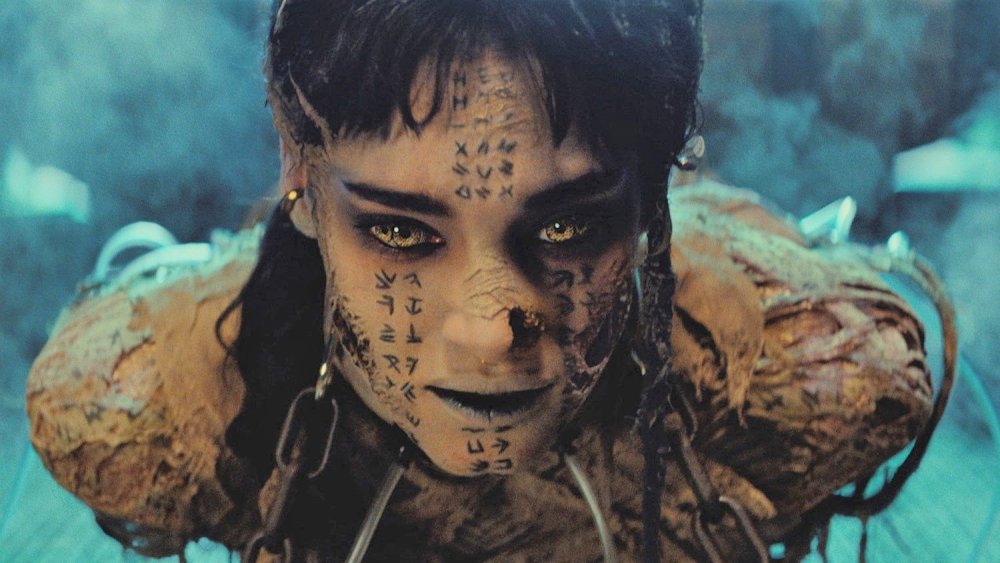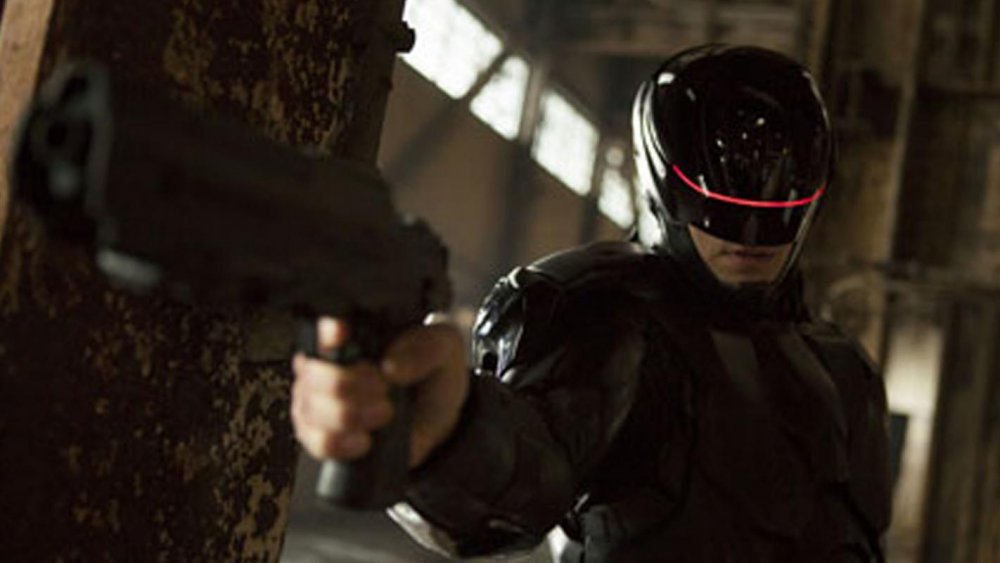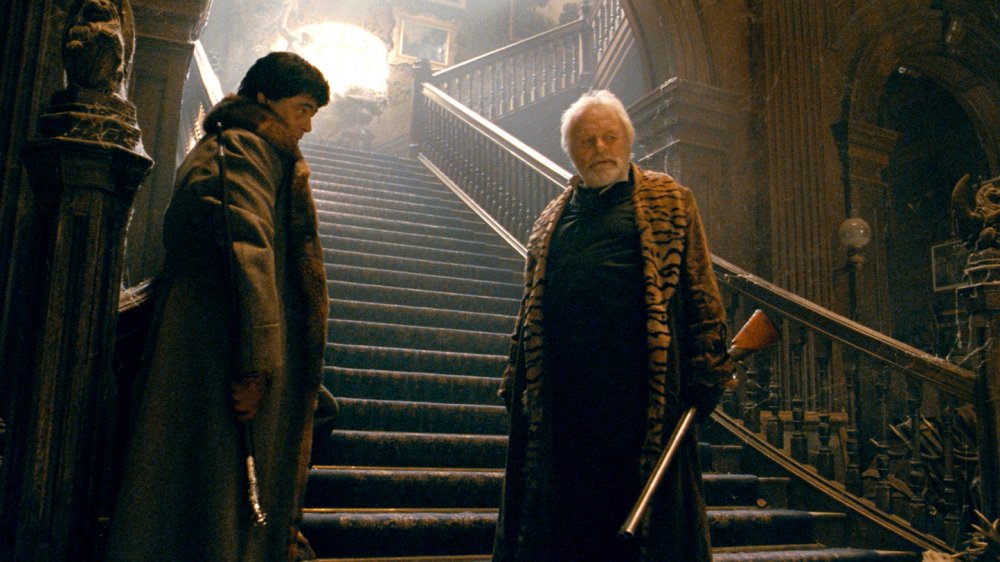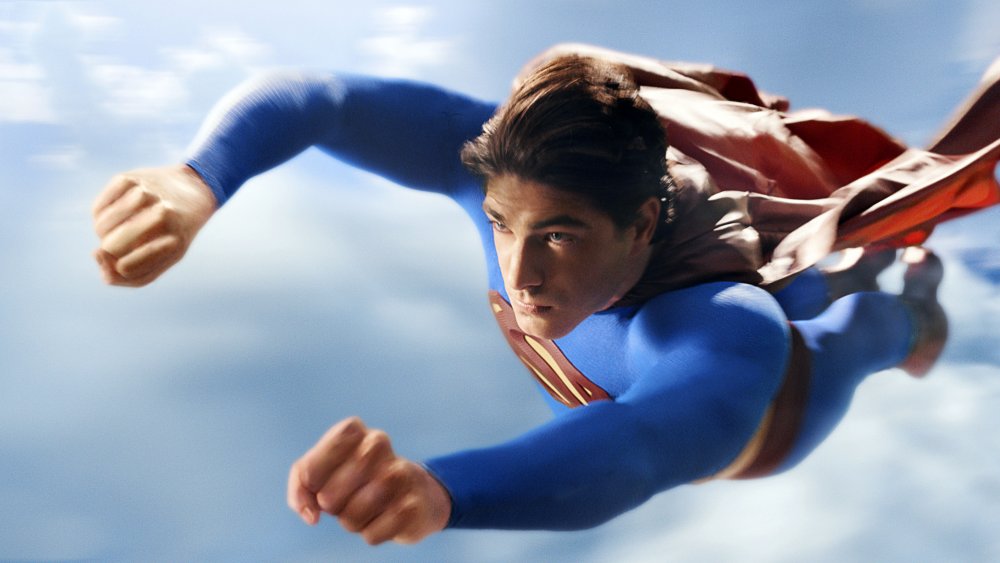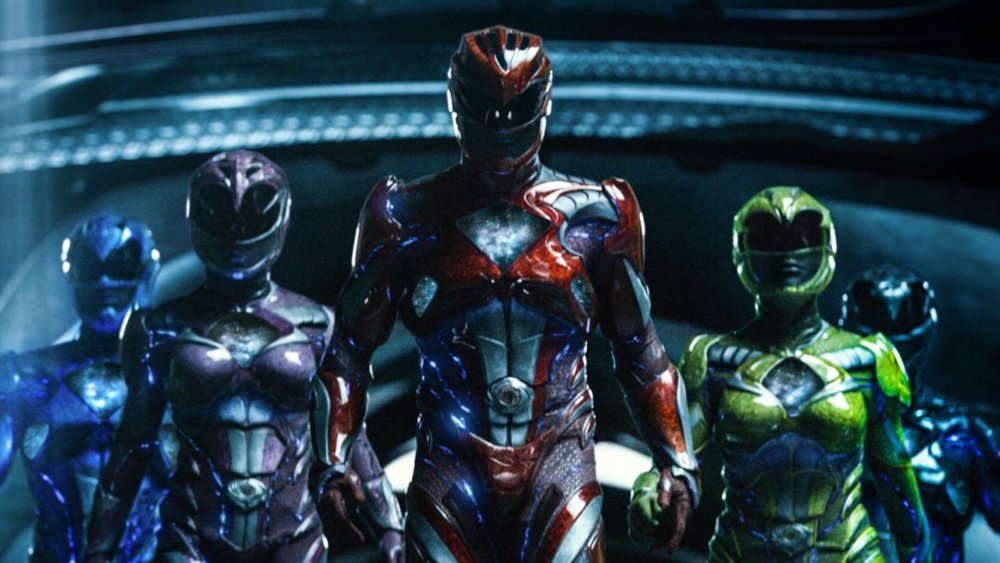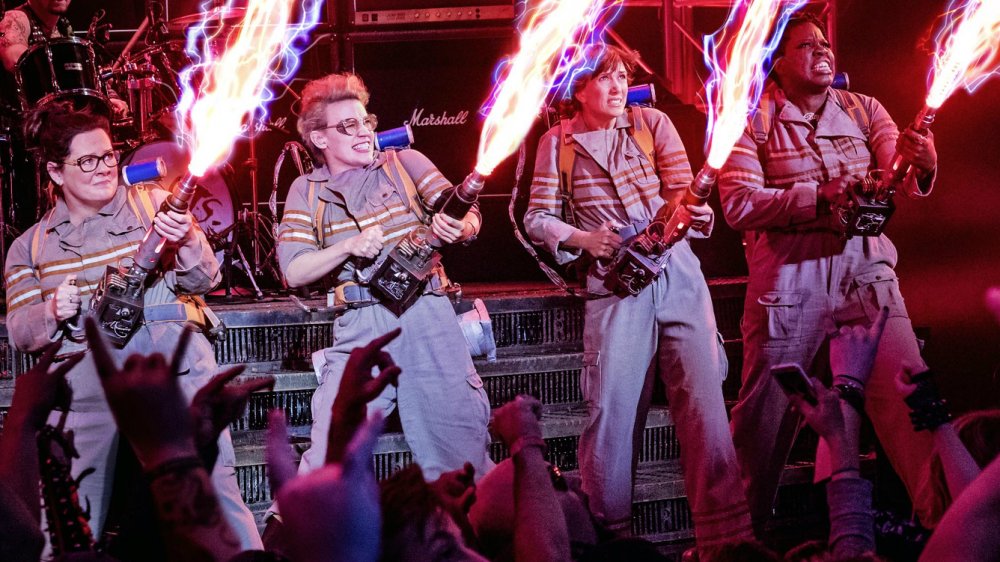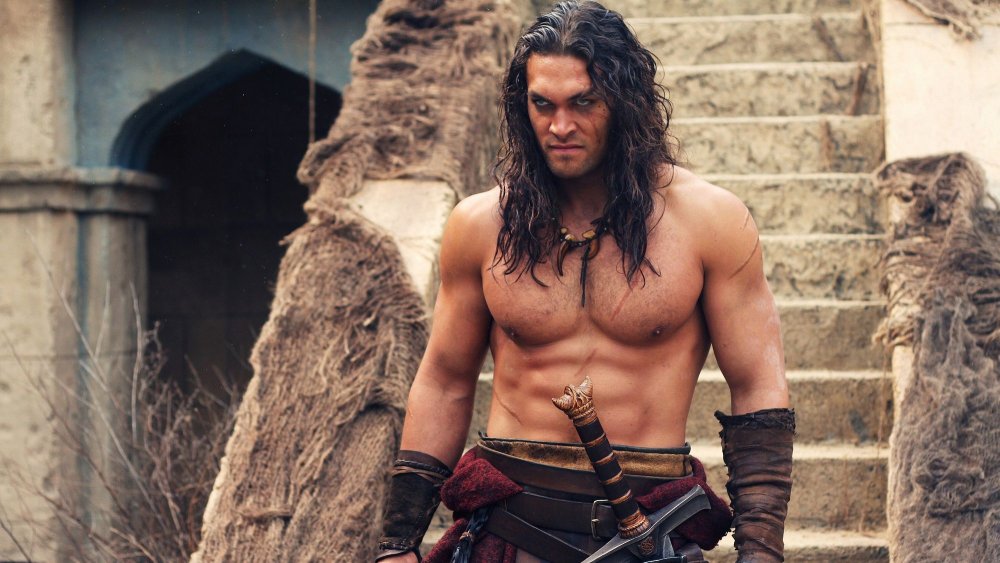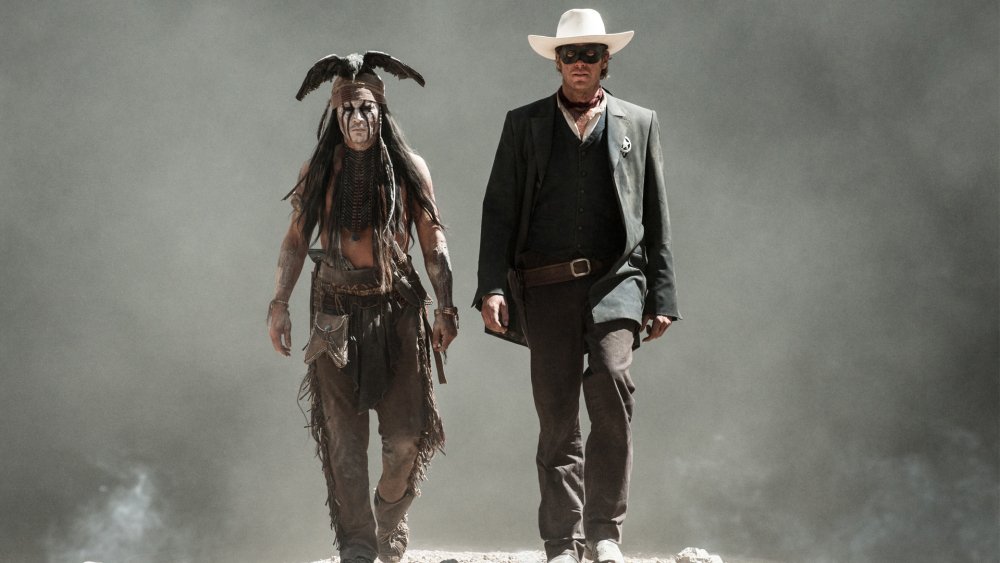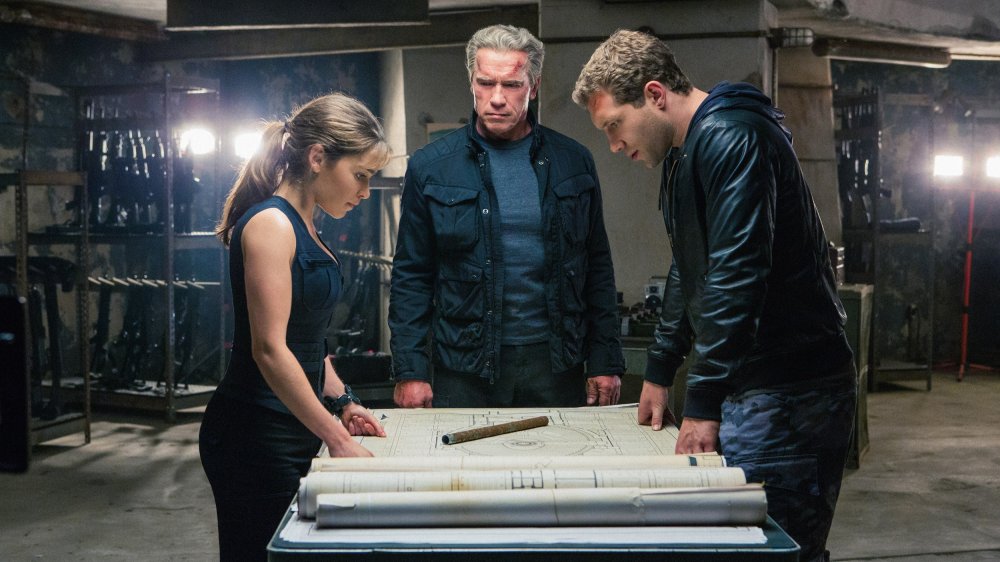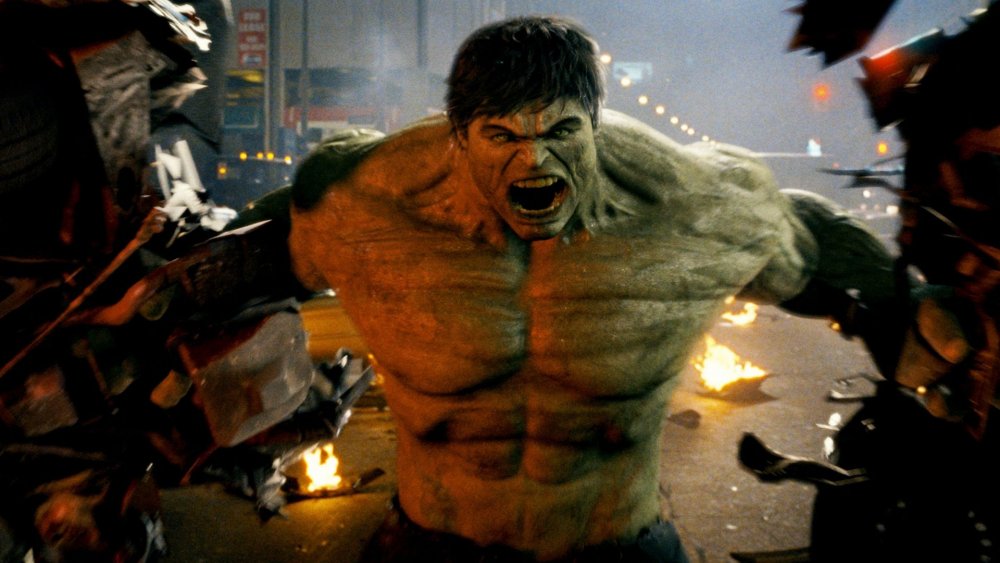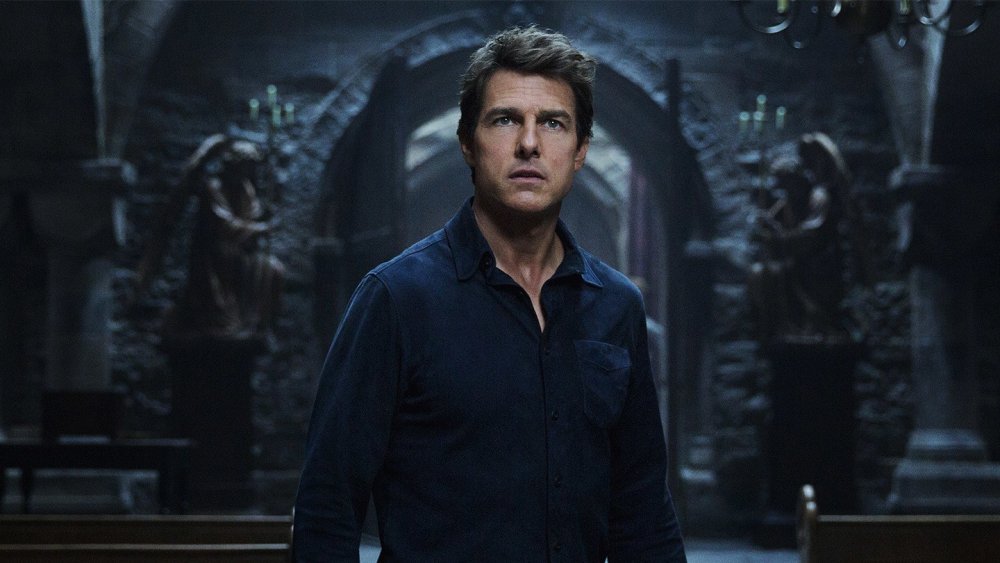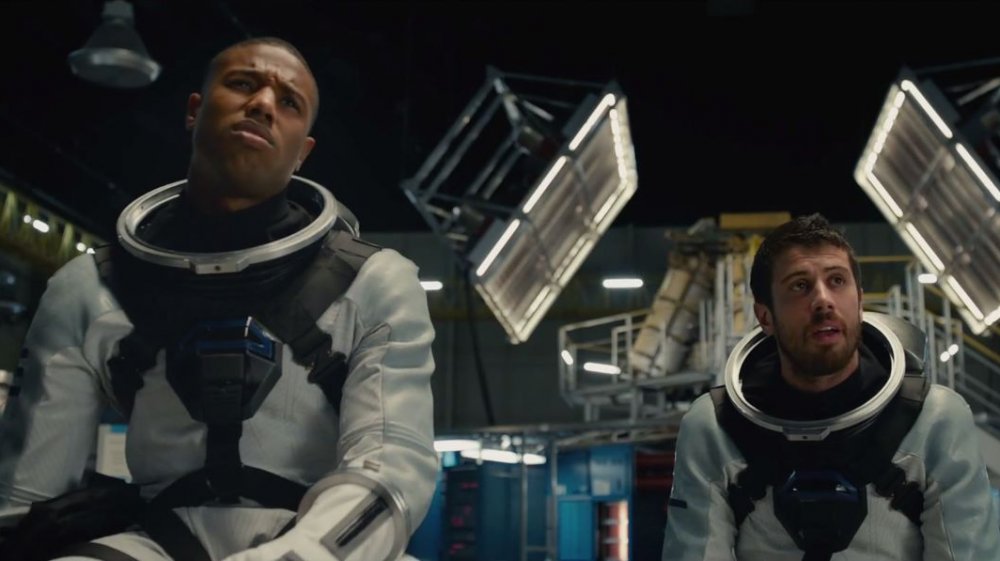Franchise Reboots That Bombed At The Box Office
Rebooting a franchise is a tricky proposition, but when it works, you wind up with Christopher Nolan's Dark Knight trilogy, the Andy Serkis Planet of the Apes movies, or the Daniel Craig James Bond films. Unfortunately, not all franchise reboots work out the way that movie studios would hope.
There are any number of reasons as to why some franchise revivals fall completely flat. Perhaps its thanks to bad reviews. Maybe the budget was so big that the film was never going to make its money back. Or perhaps the reboot itself was so questionable, so stupid, so insane that audiences had absolutely no interest in shelling out for tickets.
The list of failed franchise reboots is a long one, but some have failed so spectacularly that it makes us wonder why studios continue to invest their time and money into the concept. And today, we're taking a look at some of the biggest bombs of them all — franchise reboots that disappointed fans, studios, and critics alike.
Robocop lost a lot more than a dollar
There's just something about the nostalgia of decades-old action that seems to cry out for a reboot. Sometimes they work, like with 2005's Batman Begins. Other times, they absolutely don't. The 2014 RoboCop reboot wasn't just an example of how bad an action remake could be. It was proof that trying to appeal to a wider audience by watering down a film's content so it'll fit into the PG-13 bracket is often the biggest mistake a studio can make.
The original R-rated RoboCop, released in 1987, is remembered specifically for its over-the-top use of ultraviolence. The film's satire borders on ridiculousness, but ultimately, it manages to deliver a message on morality and the problem with corporate America. Fast forward nearly three decades, and there's a new RoboCop, one that doesn't seem to want to tackle any sort of issue in any particularly meaningful way. It's a complete throwaway story-wise, and its PG-13 downgrade only serves to make it more forgettable.
RoboCop's critical failure was mirrored at the box office. The film couldn't even pull in a quarter of its $100 million budget during its opening weekend, and it's since made less than $60 million domestically.
The Wolfman had some scary box office numbers
Universal Pictures has long struggled with trying to find a new audience for its classic movie monsters. For example, there's The Wolfman. In 2010, Universal Pictures sunk $150 million into a reboot of its 1941 horror classic. Starring Benicio del Toro, Anthony Hopkins, and Emily Blunt, The Wolfman could've been a breakthrough for the modern monster. Instead, it got too caught up in trying to actually recreate the original that anything new it could've brought to the table got lost in its thick, color-corrected fog. It's as though The Wolfman just took the 1941 script and threw in a few modern clichés in order to "update" the story, but it didn't think about how any of it would work as a whole. Well, it doesn't work at all, and the film wound up being panned by critics. To add insult to injury, The Wolfman earned a measly $139 million worldwide, failing to earn back its production budget. While the film didn't frighten moviegoers, those numbers probably terrified every one at Universal.
Superman Returns failed to reboot the Son of Krypton
To be clear, Bryan Singer's Superman Returns isn't the worst franchise reboot ever made. Released in 2006, the film was meant to be a continuation of the story that ended with 1980's Superman II (while ignoring the fact that Superman III and Superman IV ever happened). Brandon Routh stars as the titular character, who's just returned to Earth after having spent five years investigating his home planet, only to discover that things have gone haywire in his absence.
Overall, the film did well with critics. Boasting a certified fresh rating on Rotten Tomatoes, the general consensus of Superman Returns is that it's "a satisfying stick-to-your-ribs adaptation." The problem with the movie is that while critics may have enjoyed Singer's vision for the DC superhero, audiences just couldn't get into it. With a $270 million budget, Superman Returns could only return $52 million of it during its opening weekend, and in total, the movie earned just $391 worldwide. Considering its budget, that ain't so great for a superhero flick, and the loss crushed any hope of having Singer return for a follow-up (which was probably for the best), and it would take another seven years before Clark Kent would see the big screen again in Zack Snyder's Man of Steel.
Power Rangers was a no-go at the box office
Kids who grew up in front of their TVs in the early '90s have a built-in soft spot for the Power Rangers, a group of high schoolers who suddenly find themselves imbued with interstellar powers and a giant mecha that could be used to defeat their evil alien nemesis, Rita Repulsa. The show was part American kids show, part Japanese kids show, and part PSA, and it was known specifically for its cheesy, campy vibe. It's hard to recapture the magic of something like that, but in 2017, Lionsgate gave it its best go with its superpowered reboot Power Rangers.
Unfortunately, the only super thing about Power Rangers is just how spectacularly it managed to fail, both critically and commercially. The film lacks any of the corny appeal of its television predecessor, and instead, it falls into a trap of feeling sort of like a Transformers rip-off. But at the end of the day, it mostly feels like a sad attempt to cash in on '90s nostalgia. Looking back on the Mighty Morphin Power Rangers as an adult, though, means coming to terms with the fact that it was never actually a good show. So to reboot something like that takes a tremendous amount of nerve. Kudos to Lionsgate for the attempt. It's just too bad that it only made $142 million against its $100 million budget.
The Ghostbusters reboot couldn't live up to the original
Ivan Reitman, Harold Ramis, and Dan Aykroyd created something truly special in 1984 with Ghostbusters. The film had an original concept, an incredible cast, and it was the perfect blend of science fiction, action, and comedy. A film like that makes future sequels and reboots inevitable, but it also sets the bar far too high in terms of expectations for those films. Enter Paul Feig's 2016 Ghostbusters reboot, starring Melissa McCarthy, Kristen Wiig, Kate McKinnon, and Leslie Jones. In spite of being a good movie — one that had the support of the original's cast and crew — the female-led Ghostbusters bombed at the box office, and the reasons why are pretty unfortunate.
Feig spoke with Vulture shortly after his film's release and gave his own take on the movie's failure to relaunch the Ghostbusters franchise. And according to Feig, a lot of the film's failure can be attributed to good, old-fashioned misogyny. "I didn't realize that for certain older guys, the original Ghostbusters is the equivalent of a tree house that has the no girls allowed sign on it," the director said. "And I think they look at me as the guy who came up, took the sign, lit it on fire, and then painted the inside of the tree house pink."
Another big issue for the movie? Its over-inflated budget. At $144 million, Ghostbusters would've required a huge box office haul (Feig suggests at least $500 million) just to pay back the production and marketing costs.
Despite Jason Momoa, Conan the Barbarian bombed hard
If you don't remember the 2011 Conan the Barbarian reboot attempt, don't worry, you aren't alone. The CGI heavy, sci-fi fantasy flick failed so miserably at the box office that it's a wonder how star Jason Momoa managed to continue on to a fruitful career afterwards. With a budget of $90 million, Conan the Barbarian made a paltry $10 million its opening weekend. In total, the thing earned just $48.7 million worldwide.
Screenwriter Sean Hood attempted to shed some light on the disaster on Quora, where the question "what's it like to have your film flop at the box office?" was posed. Hood responded (via Vulture) by saying it was a lot like working on a political campaign and then having to watch your candidate lose on election night, going on to blame the filmmakers for worrying too much about "tracking numbers" and making compromises. According to Momoa, however, the film's failure was all because of Hood's script. As the actor explained (via Den of Geek), "There's just a lot of things that came into it, and sometimes the script just wasn't there."
Whatever the issue was, the real lesson we should take away from Conan is that a franchise built by Arnold Schwarzenegger really shouldn't be rebooted without Arnold Schwarzenegger.
The Lone Ranger was a disaster of epic proportions
The Lone Ranger was always going to be a big budget disaster. According to The Hollywood Reporter, the film was originally set for release in 2012, but Disney halted production the year prior over budgetary concerns. The studio went toe-to-toe with the film's director, Gore Verbinski, who, according to one insider, didn't "want to budge for what he thinks a movie like this needs." The Lone Ranger wound up getting made anyway, but ultimately, it would've been better for everyone involved if it hadn't. With an outrageous $215 million budget, the movie opened to less than $30 million, marking it as one of Hollywood's biggest box office flops in recent years.
The financial dispute seemed to plague the film in other ways, too. Stars Johnny Depp and Armie Hammer told Variety that The Lone Ranger failed because critics had made up their minds about how bad the film would be months prior its release. "This is the deal with American critics. They've been gunning for our movie since it was shut down the first time," Hammer told the publication. "That's when most of the critics wrote their initial reviews." Indeed, critics were not kind to the film. Labeled "bland" and "bloated," The Lone Ranger was absolutely decimated by Rotten Tomatoes.
Terminator Genisys couldn't bring the franchise back to box office success
Since 1984, the Terminator franchise has seen countless ups and downs, timeline shifts, and John Connors. In 2015, Genisys was supposed to have delivered audiences from all of the franchise's prior nonsense. The film even had the support of series creator James Cameron, who told Yahoo! (via Cinema Blend), "I feel like the franchise has been reinvigorated, like this is a renaissance." It should've been the beginning of a brand new trilogy. It was not.
Terminator Genisys cost Paramount Pictures $155 million to make, but it was only able to bring in $27 million over its opening weekend. It'd be easy to blame the film's poor reviews for its failure to relaunch the franchise, but Genisys' production wasn't an easy one, by any means. Star Emilia Clarke told Vanity Fair that director Alan Taylor got "eaten and chewed up," that "no one had a good time," and that things got so bad that the crew of nearby production Fantastic Four had jackets made that said "AT LEAST WE'RE NOT ON TERMINATOR." While 2019's Terminator: Dark Fate certainly suffered its own box office misery, its filmmakers can rest easy knowing things weren't as bad as Genisys.
The Incredible Hulk was an incredible bomb
The Hulk was able to carry an entire TV series through the late '70s and into the early '80s, with a resurgence in the late '90s and a couple of made-for-TV movies in between. But when it came time to make the Ferrigno-less leap onto the big screen, the character struggled to find the same level of success. Neither 2003's Hulk nor 2008's The Incredible Hulk managed to make much of an impact on audiences, but between the two, The Incredible Hulk failed harder.
The film opened to only $55 million in sales domestically, which, compared to its sizable $150 million budget, is incredible small. Keep in mind The Incredible Hulk was the second installment in the brand new Marvel Cinematic Universe. Iron Man, which also premiered in 2008, brought in nearly double what The Incredible Hulk did its opening weekend. According to Stan Lee, the failure of the film lies in Hulk himself. He told Rolling Stone (via Cinema Blend) that he thought it wasn't necessary for him to be as big or as powerful as he was. But that apparently doesn't apply to Mark Ruffalo's Hulk, of which Lee said, "Nobody could do it better."
The Mummy killed an entire franchise
After the failure of both The Wolfman and Dracula Untold, Universal Pictures decided it was time to go another route with its cache of movie monsters, so the studio officially created its Dark Universe. The idea was simple: a shared world comprised of the studio's classic movie monsters. Think of it kind of like the MCU, only instead of Robert Downey Jr.'s Iron Man, we got Tom Cruise's semi-undead military sergeant. Unfortunately, the film was dead on arrival, with 2017's The Mummy reboot bringing in a mere $32 million its opening weekend against its $125 million budget.
Although labeled a horror, The Mummy is anything but. It winds up being more of a typical Tom Cruise action flick, only set in a world where ancient mummies are expert fighters. Critics panned the movie on account of its inability to make anyone care about its monster, a mainstay feature of the films of old. Director Alex Kurtzman acknowledged as much in a later interview with The Hollywood Reporter, saying, "The Mummy wasn't what I wanted it to be. ... Those films are beautiful because the monsters are broken characters, and we see ourselves in them." And as a result of the film's failure, the entire Dark Universe just disappeared.
Fantastic Four wasn't a fantastic reboot
Marvel's longest-running superhero team just can't catch a cinematic break. In spite of being one of the comic giant's most popular series, when it comes to on-screen adaptations, it seems as though no one can get the Fantastic Four right. While 2005's version was an over-the-top cheesy mess, it at least made an attempt at maintaining the lighthearted tone of its comic origins. When it comes to the 2015 Fantastic Four, well, things got a little too dark.
Labeled "dull and downbeat" by critics, Fantastic Four failed to impress audiences with its grittier tone and over-simplified storyline, which was an issue Stan Lee brought up during a Larry King interview (via Cinema Blend) when he explained that the studio hadn't even bothered to discuss the film's story with him beforehand. Plus, the making of the film was a total mess. By the time it hit theaters, there was little hope. Its $120 million budget, although small by comparison to other Marvel-based features coming out at the time, was too big to make up domestically. Over its opening weekend, Fantastic Four wound up bringing in only $26 million for Fox. In total, the movie earned a measly $167 million worldwide, which isn't so fantastic.
